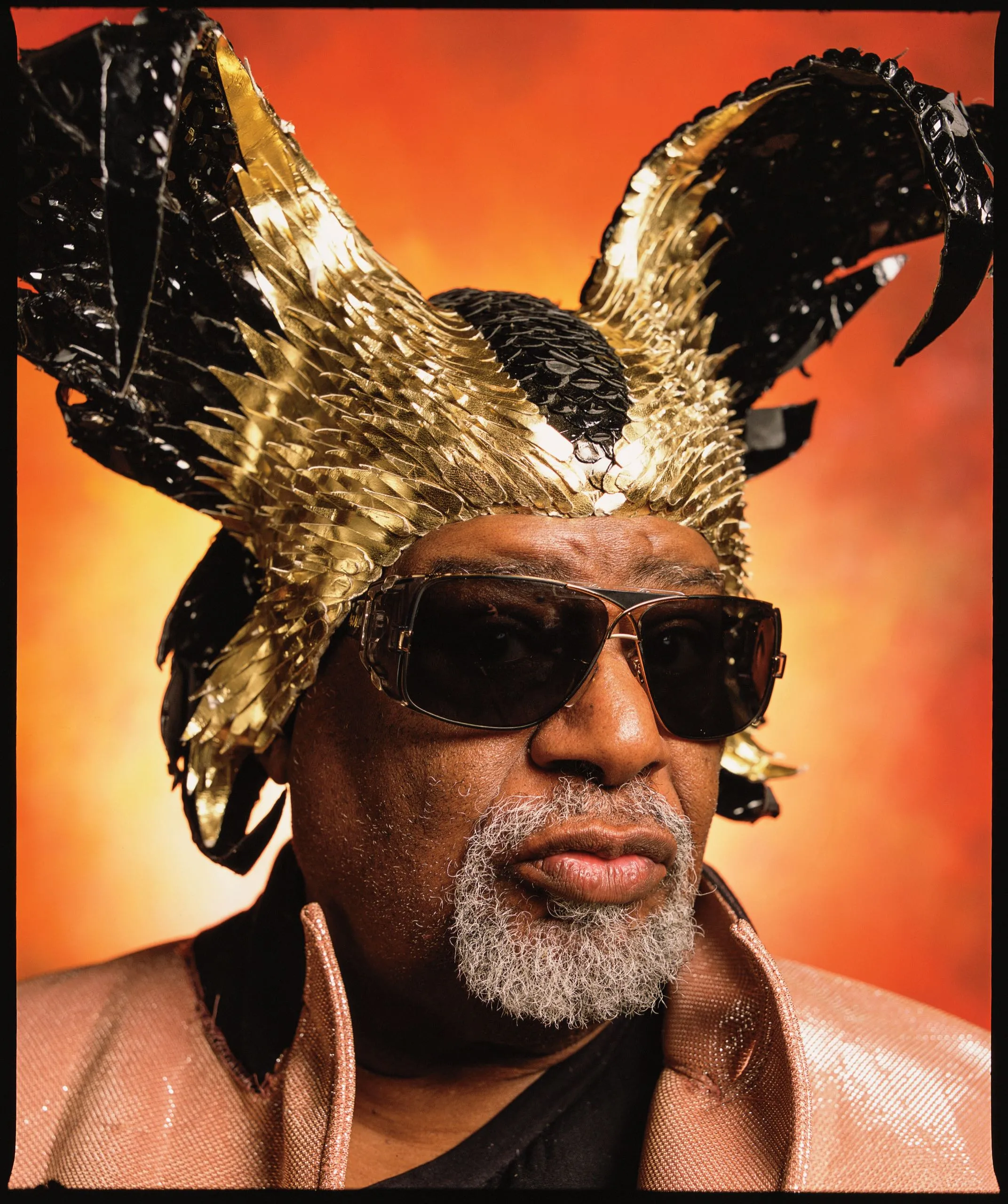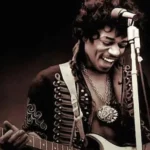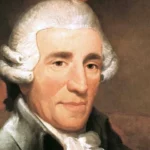Get ready to embark on a funky voyage through the cosmos as we explore the life and legacy of George Clinton, the musical visionary who revolutionized funk and soul music. Known for his band Parliament-Funkadelic, Clinton’s journey is a tapestry woven with innovation, social commentary, and an unparalleled stage presence. Join us as we delve into the extraordinary world of George Clinton, the Cosmic Warrior.
Facts About George Clinton
George Clinton’s name is practically synonymous with funk music. He stands as a towering figure, not merely influential but a bona fide legend. Here’s a glimpse into the facets that make this musical pioneer so captivating:
1. Clinton’s Pivotal Role in Shaping Funk Music: While not the sole inventor of funk, Clinton’s influence on the genre is undeniable. He masterfully blended the soulful essence of R&B with the raw energy of rock, adding a dash of psychedelic weirdness for good measure. This unique sonic concoction, christened “funk,” transformed the musical landscape forever.
2. Parliament-Funkadelic: The Genesis of a Funk Empire: Consider Parliament-Funkadelic (P-Funk to aficionados) the musical equivalent of a funk superhero team. Under Clinton’s leadership, this collective transcended the boundaries of a conventional band, evolving into a breeding ground for extraordinary talent. Legends like the incomparable bassist Bootsy Collins and the keyboard virtuoso Bernie Worrell graced its ranks, converging to create some of the funkiest grooves ever laid down.
3. A Stage Presence Like No Other: Imagine a stage presence so dynamic and outlandish that it would make even the most flamboyant rock stars blush. That was George Clinton in his element. Donning costumes seemingly borrowed from a spaceship’s wardrobe, he commanded the stage with an infectious energy that defied indifference.
4. A Voice for Social Change: Clinton’s influence extended far beyond the realm of music. He artfully utilized his fame as a platform to advocate for social justice, fearlessly addressing inequality and championing empowerment. This unwavering commitment to positive change solidified his status not just as a musician, but as a cultural icon.
5. Collaborations That Read Like a Who’s Who of Music: Clinton’s magnetic artistry drew collaborators from the highest echelons of the music industry. From the funky monks of the Red Hot Chili Peppers to the lyrical genius of Snoop Dogg, and even a connection to the legendary Beatles—Clinton’s musical reach transcended genres and generations.
6. Hall of Fame, Grammy Awards, and a Legacy That Endures: Clinton’s monumental contributions to music earned him a well-deserved place in the prestigious Rock and Roll Hall of Fame in 1997. Adding to his accolades, he received a Grammy Lifetime Achievement Award in 2019, a testament to his enduring impact on music. Even today, his music continues to inspire and influence artists across the spectrum, proving that funk, as the saying goes, is eternal.
What was George Clinton Known for?
If you’re ready to delve into the world of the legendary George Clinton, buckle up, because we’re diving headfirst into the heart of funk! This wasn’t just any musician; this was the “Godfather of Funk” himself, the man who practically invented the genre with his crew, Parliament-Funkadelic. And let’s be clear: this wasn’t your typical, run-of-the-mill music.
Imagine soul music launched into outer space with a healthy dose of psychedelic rock propelling it forward. Yeah, that’s the kind of vibe we’re talking about. Clinton masterfully blended these elements with a hefty dose of Afrofuturism, creating a sound so innovative and funky that it left audiences awestruck and dancing for decades.
But Clinton was more than just a musician; he was an experience. With his outlandish costumes and larger-than-life personality, he transformed his performances into spectacles that were as much about the visuals and the feeling as they were about the music. He wasn’t afraid to get political either, skillfully weaving social commentary into his lyrics and using his platform to speak truth to power.
And it wasn’t just about him. Clinton served as a mentor to a generation of musicians, including the funky maestro Bootsy Collins. He shaped the future of funk and inspired countless others to find their own groove.
The beauty of Clinton’s music lies in its refusal to be confined to a single box. His funky influence permeated countless genres—hip-hop, G-funk, you name it. He became the epitome of cool, his style emulated by countless artists, even if they couldn’t quite replicate his magic.
Clinton’s Legacy in a Nutshell:
- Funk Innovator: He practically invented funk music with his band, Parliament-Funkadelic.
- Musical Alchemist: His sound was a unique fusion of soul, rock, and a futuristic Afro-centric vibe that defied categorization.
- Social Messenger: Clinton used his outlandish performances to subtly address societal issues and advocate for justice.
- Musical Mentor: He mentored and collaborated with some of the biggest names in music, leaving an indelible mark on the industry.
- Cultural Icon: Clinton’s influence transcended funk, spilling over into numerous other genres and cementing his place in music history.
Did George Clinton Go to College?
The question of George Clinton’s educational background often arises when considering the immense talent and creativity that fueled his musical journey. While George Clinton’s musical innovations revolutionized funk, he didn’t follow the traditional path of higher education. Instead, he immersed himself in the world of music, learning his craft through hands-on experience and collaborations. His journey was akin to a real-life masterclass in funk and soul.
The absence of a formal music education didn’t preclude recognition from the academic world. In 2012, the esteemed Berklee College of Music acknowledged Clinton’s extraordinary contributions to music with an Honorary Doctorate of Music. It was a testament to his unparalleled impact on music, achieved through unconventional means.
Clinton’s story exemplifies the diverse paths to success, particularly in creative fields like music. His innate talent, combined with unwavering passion and dedication, propelled him to the forefront of the funk movement, forever influencing musicians and shaping the sounds of generations.
To truly appreciate the depth of Clinton’s impact, consider the electrifying energy of Parliament Funkadelic’s performances, their genre-bending fusion of funk, rock, and soul, and their thought-provoking lyrics that often tackled social and political issues. It’s no wonder he’s hailed as a true innovator and icon.
George Clinton’s musical journey challenges the conventional definition of education and influence. While he may not have attended college in the traditional sense, his musical brilliance and the recognition he received solidify his place as a true musical pioneer.
How many children does George Clinton have?
Beyond his funk legacy, George Clinton is also a father of eight: six sons (George Jr., Tracey, Michael, Trevor, Ronnie, and Paipais) and two daughters (Tajai and Shaka). Sadly, in 2010, his son George Jr. passed away from natural causes at the age of 50.
While the intricacies of his personal life remain largely private, we do know that Clinton has been married twice. His first marriage was to Stephanie Lynn Clinton, lasting from 1990 to 2013. He later married his current wife, Carlon Thompson-Clinton, who was previously his manager. However, they have no children together.
George Clinton’s life is a testament to the power of family, music, and an unyielding passion for creative expression.
What characters did George Clinton create?
George Clinton, the Godfather of Funk, wasn’t just about crafting infectious grooves; he was a master of creating outlandish, unforgettable characters that became synonymous with the P-Funk experience. These characters, more than just stage personas, embodied the essence of P-Funk itself.
One glimpse at these creations, and you knew you were in for a wild ride. Take Sir Nose D’Voidoffunk, for example. With his comically oversized nose and shades obscuring half his face, he was the resident jester of the P-Funk universe, always good for a laugh. Then there was Dr. Funkenstein, the enigmatic mad scientist who piloted the “Mothership Connection”—Clinton’s metaphorical spaceship transporting audiences to a dimension of pure groove. And who could forget Bootsy Collins, the flamboyant bassist with his signature star-shaped sunglasses? He was like Clinton’s funky alter ego, injecting every bassline with an extra dose of cool.
These characters weren’t confined to the stage; they permeated the music itself, infusing it with layers of playfulness and surrealism. Consider “Atomic Dog,” the classic Clinton anthem about a canine on a psychedelic adventure. Or “Maggot Brain,” an instrumental masterpiece featuring Eddie Hazel’s mind-bending guitar solo, transformed for the occasion into “Maggot.”
These characters transcended mere costumes and stage names; they represented the heart and soul of P-Funk, a world where imagination ran wild, and funk provided the soundtrack to a cosmic journey. The outlandish costumes, the eccentric dance moves, the sheer energy of their performances—Clinton’s creations weren’t just music; they were cultural icons that continue to inspire and entertain.
To encounter Sir Nose D’Voidoffunk was to know you were about to have fun. To hear Dr. Funkenstein’s name was to prepare for a sonic trip into the unknown. That’s the power of George Clinton’s character creation—it’s unforgettable.
What is Clinton Best Known For?
George Clinton is often hailed as the “Godfather of Funk,” and for good reason. His band, Parliament-Funkadelic, didn’t just play funk; they breathed new life into it. They blended soul, rock, and even psychedelic elements, creating a musical tapestry as eclectic as it was innovative. Their lyrics were equally out-there, shifting from spaceships and aliens to thought-provoking social commentary, taking audiences on a journey that was both musically and intellectually stimulating.
Clinton’s influence extended far beyond the funk realm. His sound resonated with artists across genres, from hip-hop icons like Snoop Dogg to rock bands like the Red Hot Chili Peppers. He was a musical chameleon, his influence spanning decades and genres.
But Clinton’s impact went beyond studio recordings. He was a born showman, transforming his concerts into unforgettable spectacles with elaborate costumes, captivating dance moves, and an infectious energy that radiated from the stage. His performances were immersive experiences that transcended the boundaries of a typical concert.
While his music was undeniably funky and fun, Clinton wasn’t afraid to address serious issues within his lyrics. He tackled themes of racism, poverty, and the complexities of the human condition, encouraging audiences to groove while also prompting them to reflect on the world around them.
Here’s a glimpse into the key elements of Clinton’s lasting legacy:
- Funk Revolutionary: With Parliament-Funkadelic, he created a sound that defied categorization and redefined a genre.
- Musical Inspiration: His influence reverberated throughout the music industry, impacting everything from hip-hop to rock.
- Master Showman: Clinton’s live performances were legendary spectacles that captivated audiences.
- Socially Conscious Artist: He used his music to champion social justice and spark meaningful conversations.
George Clinton truly earned the title of “Godfather of Funk.” He was a visionary artist who pushed boundaries, challenged conventions, and left an indelible mark on music history.
What was General Clinton known for?
General Sir Henry Clinton, a prominent figure in the American Revolutionary War, served as the Commander-in-Chief of British forces in North America from 1778 to 1782. Known for his strategic mind and controversial decisions, Clinton’s leadership played a pivotal role in shaping the trajectory of the war.
Clinton’s military career was marked by both triumphs and setbacks. He believed in a strategic approach to the war, aiming to maintain control of key territories while seeking opportunities to weaken the Continental Army. Historians credit him with success in the Southern campaigns, including the capture of Charleston, South Carolina, in 1780. He also recognized the logistical challenges of fighting a war across the Atlantic and emphasized maintaining supply lines to support his troops.
However, Clinton faced criticism for some of his decisions, particularly his handling of the siege of Yorktown in 1781. His choice to fortify Yorktown ultimately backfired, culminating in a decisive victory for the American forces and a turning point in the war.
Despite his mixed record, Clinton possessed undeniable military acumen. He understood strategy, logistics, and the importance of adapting to ever-changing circumstances. However, his tenure as Commander-in-Chief was also marked by conflicts with subordinates and missed opportunities.
Even after the war, Clinton remained a significant figure in British military circles. He continued to influence military thinking and briefly ventured into politics. His legacy, while complex and debated among historians, highlights the intricacies of leadership during wartime.
Here’s a summary of General Clinton’s key contributions and challenges:
- Strategic Leader: Served as the top commander of British forces in America during a crucial period of the Revolutionary War.
- Military Strategist: Employed a strategic approach, focusing on controlling key areas and wearing down the Continental Army.
- Mixed Record of Success: Achieved victories in the South but faced criticism for strategic decisions, notably at Yorktown.
- Logistical Challenges: Grappled with the complexities of supplying and reinforcing his troops across vast distances.
- Enduring Influence: Continued to shape British military thought even after the war.
For further exploration of General Clinton’s life and career, consider these resources:
- Add a few reputable sources here, like books or websites
Remember, historical figures are complex. Engage with diverse perspectives and form your own interpretations of General Clinton’s role in the American Revolution.









